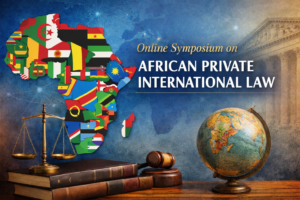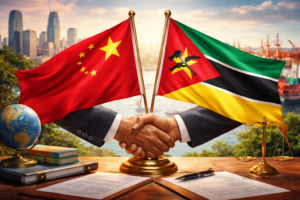The HCCH and and the Istanbul Bilgi University, Department of Private International Law, are organising a webinar on the 1996 Hague Child Protection Convention on 6 December 2022, 3 pm-5 pm (GMT +3).
The HCCH 1996 Child Protection Convention has been occupying a crucial spot for the protection of children in today’s globalized world, for more than 25 years. Experts from several countries, including central authority representatives, will discuss the convention, which tries to ensure that children are affected by intrafamilial disputes as little as possible, and will share their experiences as regards its application.
The webinar plan is as follows:
First Session
Moderator: Prof. Dr. Faruk Kerem Giray – Istanbul University Faculty of Law, Private International Law Department
- Introduction: “The HCCH 1996 Child Protection Convention: Main Features, Challenges and Opportunities After 25 Years” – Raquel Salinas Peixoto (on behalf of the Hague Conference on Private International Law)
- “Basic Concepts of the Convention, Role and Function of Central Authorities (GER)” – Christian Höhn – Germany, Central Authority, Federal Office of Justice
- “Basic Concepts of the Convention, Duties and Functions of Central Authorities (SUI)” – Joëlle Schickel-Küng – Switzerland, Central Authority, Co-Head, Private International Law Unit, Federal Office of Justice
Second Session
Moderator: Retired Judge Izzet Do?an
- “The Issue of Jurisdiction and General Experience of the Operation of the Convention” – Lord Justice Andrew MOYLAN – UK, Judge of the Court of Appeal, The Royal Courts of Justice, London
- “The Determination of the Applicable Law According to the HCCH 1996 Child Protection” – Judge Dr. Joanna GUTTZEIT – Germany, Judge of the Family Court, Local Court of Pankow (Richterin am Amtsgericht Pankow), Berlin, Liaison Judge of the International Hague Network of Judges
- “Recognition-Enforcement Pursuant to the Convention, and the Practical Benefits” – Carolina Marín Pedreño – Practitioner, Partner, Dawson Cornwell


